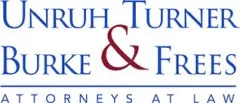Community input and engagement are a vital part of land use planning. Getting the community, including adjacent and nearby landowners involved in a positive way, however, can be challenging. Doing so often requires a concerted effort by community groups, developers, individual stakeholders, and planning practitioners. A well-thought-out and organized approach using the following best practices for engaging with the community is advisable:
Identify Your Audience: Know the Community
To productively engage with a community, it is imperative first to understand the community. Demographic data is helpful; however, spending time in and among the community is ideal. Efforts should be made to identify and reach groups and neighboring property owners within the community. Effective community engagement in land use planning includes the community as a whole, not just the typical decision-makers within the community. Recognizing and acknowledging a broad range of community members, instead of focusing primarily on major stakeholders, is an excellent way to gain trust within the community at large.
Transparency: Be Open and Honest about Planned Development
Some community members welcome development, while others are naturally cautious about changes to their community. Both types, however, will respond negatively if they feel there is a lack of transparency about the planned development. Being open and honest (to the extent possible) about municipal land use planning from day one is the best way to set the stage for positive community engagement and project support. If aspects of the plan are likely to be met with skepticism or outright hostility, it is best to get those issues out on the table early on so they can be addressed.
Community Input: Ask for It and Listen to It
By the time most community members are made aware of planned development, the master plan has usually already been formulated. However, community members will likely still have public opportunities to provide input that may impact the final design details and potential approvals. To maximize community support for a project, ask for and listen to input from the community that will be affected by the project. Explain how community input will be used and why it is crucial to the development process. "Town hall" type meetings are one way to elicit feedback from community members; however, practical and logistical issues may prevent such a meeting. Coordinate with your legal counsel and professional consultants about the best ways to reach and engage with local residents and business owners.
Reach Out: Respond to Community Input
While responding to every community member who has provided input may be unrealistic, an organized system for responding to input should be in place. Often, community members will express the same or similar concerns about planned development, in which case, the best way to alleviate the concerns of many community members is to provide a well-thought-out response. Conversely, a surefire way to alienate community members is by keeping silent and effectively ignoring input.
Build Relationships: Plant Roots in the Community
Forming partnerships with community groups and individual stakeholders is a win-win for everyone. Building relationships that will last long after a development project is complete is an excellent way to learn more about the community and build trust within the community. Community groups, stakeholders, and individual residents will be less inclined to object to planned development when they view the project as a beneficial addition to their existing community that will add to the overall growth and prosperity of the entire community.
The content of this article is intended to provide a general guide to the subject matter. Specialist advice should be sought about your specific circumstances.


